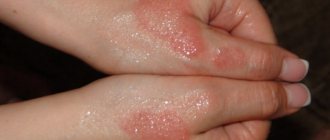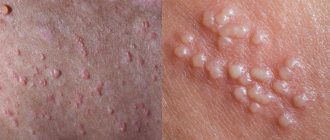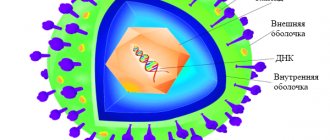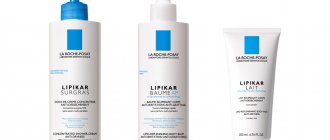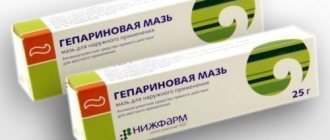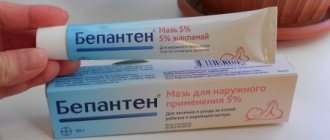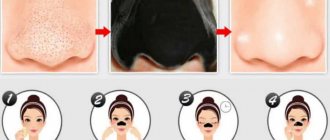The purpose of vaccination of children and adults is aimed at preventing pathological processes that arise due to a number of reasons. Vaccinations do not always have a positive effect on the human body. The vaccination process requires prior consultation with the attending physician and, if necessary, a visual and laboratory examination. Patients are often concerned about whether vaccinations can be done for atopic dermatitis. Modern medicine's answers are controversial.
People diagnosed with atopic dermatitis often refuse many vaccinations. They explain their actions by fear of exacerbation of the disease. Experts have proven that in the case of a pathological process, there cannot be a categorical ban on routine vaccination. But the effectiveness of this procedure depends on the individual case.
There are several specific cases that require vaccinations. The first reason is the age category. In childhood, it is advised not to refuse routine vaccination, but only after the permission of the treating doctor. Vaccination is no less important when a woman is planning a pregnancy, which reduces the risk of many diseases for the pregnant woman herself, the future baby.
Is it possible to get vaccinated for atopic dermatitis?
Many people are concerned about the question of whether any vaccinations are allowed for atopic dermatitis , since in most cases allergic reactions are a contraindication for vaccinations.
As for this disease, it is not a categorical contraindication for immunization. The most important thing is to choose the most favorable period for the patient’s immune system.
There are certain situations in which vaccinations are mandatory. Firstly, this is children's age. It is highly undesirable to refuse routine vaccination of a child, but vaccination can only be done after consultation and approval of a qualified pediatrician.
Secondly, immunization is required for women when planning pregnancy, since it provides them and their future babies with reliable protection against many dangerous diseases.
Precautions after vaccination
- After the vaccination is done, it is forbidden to wash for 3 days.
- Contact with allergens should be avoided.
- It is important to see a doctor for 3 days after vaccination.
- It is necessary to protect the patient from communication with those suffering from infectious diseases.
- Moisturize the skin with a cream that does not contain dyes or fragrances.
Preparations from the “Losterin” line are excellent for moisturizing the skin and hygienic procedures for dermatitis. “Losterin” is shampoo, shower gel, hand and foot creams.
When can you get vaccinated?
It is necessary to take into account that during an exacerbation of the disease you should refrain from any vaccinations, as they can provoke an increase in the signs of the disease.
Vaccination can be carried out only after achieving stable remission.
Any vaccination represents serious stress even for a healthy body. And in the presence of allergic diseases, this stress increases several times.
To avoid possible complications, it is necessary to adhere to strict rules and select the most favorable time for injections. A vaccination calendar developed by qualified medical specialists is intended for this purpose.
If the date of vaccination is chosen correctly, it will be as effective and easily tolerated. The day on which the vaccination is scheduled should be marked on the calendar in order to prepare for the procedure in advance.
What vaccinations should you not get?
Numerous clinical observations have shown that exacerbation of allergic disease after vaccination is observed mainly in children with atopic dermatitis. Moreover, not for all vaccine serums, but in each case individually.
There is an opinion that the DPT vaccine leads to an exacerbation of atopic rash. And indeed it is. Therefore, after the first vaccination with DPT vaccine, if complications are observed, it is necessary to revaccinate with imported vaccines Infanrix, ADS or ADS-M.
In addition, it should be remembered that vaccines based on chicken proteins such as Priorix should not be given to children for whom chicken eggs are an allergen.
You should not be afraid of a reaction to the vaccine if you have dermatitis. If everything is done correctly and on time, then there will be nothing but benefits from vaccinations. The main thing is to survive the acute period and go to the vaccination prepared.
How to prepare a child for vaccination?
For the effectiveness and safety of vaccination, certain rules must be followed to avoid severe post-vaccination complications:
- approximately a month before vaccination, ensure the correct diet, completely eliminating from it foods that provoke allergic reactions;
- Equally important is maintaining the correct drinking regime. It is recommended to drink more mineral still water, as it helps to effectively remove allergens and other metabolic products from the body;
- For prevention purposes, it is recommended to take antihistamines. The doctor will help you choose the right ones, as well as prescribe the optimal course;
- regulate the functioning of the gastrointestinal tract;
- exclude contact with all types of allergens (in particular, do not use clothes and bedding made of synthetic materials);
- It is recommended to take water procedures no more than twice a week under a warm shower.
Features of vaccination for atopic dermatitis
Atopic dermatitis is a chronic disease that is determined by genetics. Its characteristic external signs are skin rashes accompanied by itching. However, the main manifestation of this disease inside the body is a weakening of the immune system. Therefore, it is necessary to select the correct vaccine for each vaccination.
DTP
The DTP vaccine causes the greatest number of side effects in children with atopic dermatitis.
DPT vaccine
Particularly severe complications can occur after repeated vaccination. In order to avoid receiving false positive results, it is not recommended to perform a Mantoux test within two months after vaccination.
To maintain stable immunity to whooping cough, tetanus and diphtheria, a baby with atopic dermatitis needs revaccination six months later, in accordance with the all-Russian vaccination calendar.
Pentaxim
The Pentaxim vaccine is one of the most popular analogues of DTP. Due to fewer side effects, it is used much more often. It also provides protection not only from whooping cough, diphtheria and tetanus, but also from polio.
Vaccine Pentaxim
Pediatricians often recommend vaccination against hepatitis along with this injection. Vaccination can only be carried out during a period of stable remission.
If severe allergic reactions to a previous injection occur, you should refrain from subsequent vaccinations.
Hepatitis B vaccines
To protect against hepatitis B, various types of vaccines are used - recombinant yeast vaccine, Engerix-B, Eberbiovak-NV and some others. As a rule, three injections are prescribed. An interval of at least one month must be maintained between procedures.
Engerix-B vaccine
After completing the full course, revaccination is carried out. Vaccines designed to prevent hepatitis B cause virtually no side effects, and if they do, they are short-lived and go away easily.
The only contraindication is individual intolerance to yeast. In order to select the least allergenic vaccine for adults and children, you should consult your doctor.
Polio vaccines
Immunization against polio can be carried out with two types of drugs:
- inactivated polio vaccines containing killed poliovirus (administered intramuscularly);
- oral polio vaccines, which contain attenuated live poliovirus.
The first category of vaccines is used more often due to the fact that it is safer. It can also be used for atopic dermatitis.
The administration of inactivated vaccines to babies is carried out according to the following scheme:
- first vaccination - at the age of 3 months;
- the second - at 4.5 months;
- the third - at 6 months.
For revaccination, oral polio vaccines are used according to the following scheme:
- first - at 18 months;
- the second - at 20 months;
- the third - at 14 years old.
When to vaccinate and what vaccination rules to follow
The Ministry of Health of the Russian Federation has approved the National Vaccination Calendar, according to which children 1 year of age are subject to free vaccination against infectious diseases that are life-threatening and cause severe complications. This list is divided into 2 parts:
- A list of preventive vaccinations against infectious diseases that affect the entire human population - measles, rubella, diphtheria, chickenpox, mumps, whooping cough. In addition, the same list includes vaccinations against serious systemic infectious diseases - tuberculosis, hepatitis B, tetanus, polio and Haemophilus influenzae type B.
- The second part of this list includes all vaccinations that need to be done according to epidemiological indicators. They are not required, but are advisable for individuals who may be considered at risk.
Most vaccinations are given in the first year of life, if possible on schedule. Unfortunately, children also become ill with atopic dermatitis at the age of several months, that is, in the first year of life.
According to WHO requirements, only healthy people can be vaccinated. But atopic dermatitis is a genetically transmitted autoimmune disease with an allergic skin reaction to elevated levels of immunoglobulin lg E, which is protracted and chronic. Treatment of atopic dermatitis involves taking antihistamines orally. While taking antihistamines, the production of antibodies to the causative agent of an infectious disease may be either weakened or not work at all.
A baby at risk can be vaccinated only during the period of remission, according to an individual vaccination schedule.
How to avoid complications during the post-vaccination period?
To prevent a child with atopic dermatitis from developing severe complications after vaccinations, you must follow simple rules and recommendations:
- shortly, approximately 1-1.5 months before the scheduled time of vaccination, therapy for the disease should be carried out. For this, effective antihistamines and immunomodulatory drugs prescribed by the doctor are used;
- the first half of the day is the most suitable period for vaccination, because at this time all systems of the human body function at the required level;
- For the entire course of immunization, it is necessary to use a vaccine with a single serial number. This will avoid unexpected adverse reactions;
- after any vaccination, the patient, whether an adult or a child, must be under the supervision of a doctor for at least half an hour;
- One of the most important conditions is to carry out immunization exclusively during stable remission. If immediate vaccination is required, but this state has not been achieved, 24-hour doctor supervision is required for three days. This recommendation is especially relevant when administering one of the most difficult to tolerate vaccines - DTP.
What happens if you get vaccinated?
According to experts, atopic dermatitis is not a direct contraindication for vaccination. In order to avoid negative consequences after the procedure and to avoid deterioration of the condition, you should prepare for it as a rule, listen to the recommendations of doctors and follow them.
In modern medicine, all patients diagnosed with atopic dermatitis are divided into 4 conditional groups.
| Patient group | Who is included in it, what vaccinations are allowed |
| I | This includes adults and children who exhibit residual effects of the disease. Pathology can also manifest itself in an aggravated form. The vaccination is done in a hospital setting; doctors constantly monitor the patient’s reaction. Vaccines used:
|
| II | The second group includes patients whose remission lasts 2 months or longer. The vaccines used are the same as for the first group of patients. In this case, being in a hospital is not a prerequisite. |
| III | The group includes patients with a duration of remission of 3 months or more. They can be vaccinated against:
DTP vaccination is also included in the list of permitted ones. |
| IV | The fourth group includes patients with stable remission for 7 months or more. They must receive all age-appropriate vaccinations according to the established schedule. |
Atopic dermatitis and vaccinations are compatible things. Doctors talk about this all the time. There will be no complications if the time for vaccination is chosen correctly.
You should also first undergo a full examination and, if necessary, undergo tests. These subtleties are voiced by the attending physician, focusing on the general condition of the patient and the nature of the pathology.

